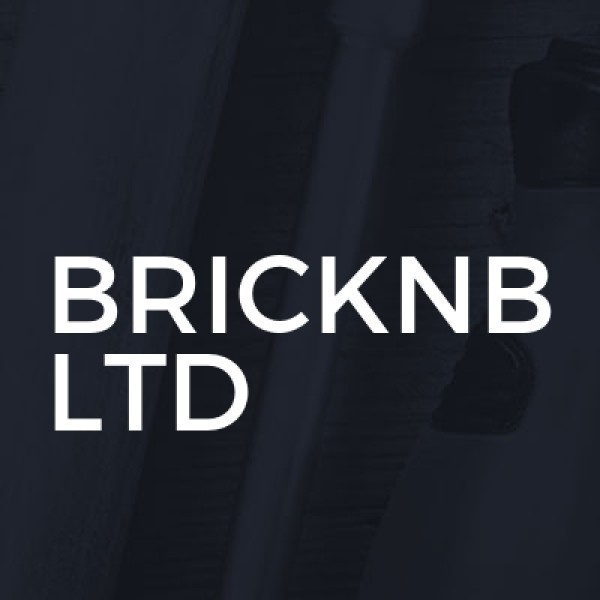Block Paving in Hayes
Understanding Block Paving in Hayes
Block paving in Hayes has become a popular choice for homeowners and businesses alike, offering a durable and aesthetically pleasing solution for driveways, patios, and pathways. This article delves into the various aspects of block paving, providing a comprehensive guide to its benefits, installation process, maintenance, and more. Whether you're considering a new project or looking to enhance your existing outdoor space, understanding block paving can help you make informed decisions.
The Appeal of Block Paving
Block paving is renowned for its versatility and visual appeal. It comes in a variety of colours, shapes, and patterns, allowing for a customised look that can complement any property style. In Hayes, where the weather can be unpredictable, block paving offers a robust solution that withstands the elements while maintaining its charm.
Variety of Designs
One of the standout features of block paving is the vast array of design options available. From traditional herringbone patterns to contemporary linear designs, the possibilities are endless. This flexibility allows homeowners to express their personal style and enhance the curb appeal of their property.
Durability and Longevity
Block paving is known for its durability. Made from materials such as concrete or clay, these blocks are designed to withstand heavy loads and resist wear and tear. With proper installation and maintenance, block paving can last for decades, making it a cost-effective investment for any property owner in Hayes.
Installation Process of Block Paving
The installation of block paving involves several key steps to ensure a long-lasting and visually appealing finish. Understanding this process can help you appreciate the craftsmanship involved and ensure that your project is completed to the highest standard.
Site Preparation
Proper site preparation is crucial for a successful block paving project. This involves clearing the area of debris, excavating to the required depth, and ensuring a stable sub-base. A well-prepared site provides the foundation for a durable and even surface.
Laying the Blocks
Once the site is prepared, the blocks are laid in the chosen pattern. This step requires precision and attention to detail to ensure that the blocks fit snugly together and create a seamless surface. The use of spacers can help maintain consistent gaps between the blocks, which are later filled with sand to lock them in place.
Compaction and Finishing
After the blocks are laid, the surface is compacted using a vibrating plate compactor. This step ensures that the blocks are firmly set and the surface is level. Finally, kiln-dried sand is brushed into the joints to stabilise the blocks and prevent movement.
Maintaining Your Block Paving
Proper maintenance is essential to keep your block paving looking its best and extend its lifespan. Regular cleaning and occasional repairs can prevent common issues such as weed growth and block displacement.
Cleaning Techniques
Regular cleaning helps maintain the appearance of your block paving. A simple sweep with a broom can remove debris, while a pressure washer can tackle more stubborn dirt and stains. It's important to use a suitable cleaning solution to avoid damaging the blocks.
Weed and Moss Control
Weeds and moss can detract from the appearance of your block paving and cause damage over time. Applying a weed killer and moss treatment can help prevent these issues. Additionally, regularly brushing the surface can discourage growth by removing organic material.
Repairing Damaged Areas
Over time, some blocks may become damaged or displaced. Prompt repairs can prevent further issues and maintain the integrity of the surface. Replacing individual blocks is a straightforward process that can be done without disturbing the surrounding area.
Environmental Benefits of Block Paving
Block paving offers several environmental benefits, making it an eco-friendly choice for outdoor surfaces. Its permeable nature allows for effective drainage, reducing the risk of flooding and waterlogging.
Permeability and Drainage
Many block paving systems are designed to be permeable, allowing rainwater to seep through the joints and into the ground below. This helps manage surface water and reduces the strain on local drainage systems, particularly important in urban areas like Hayes.
Recyclable Materials
Block paving is often made from recyclable materials, contributing to its sustainability. At the end of its life, the blocks can be removed and reused or recycled, minimising waste and environmental impact.
Choosing the Right Block Paving for Your Project
Selecting the right block paving for your project involves considering several factors, including the intended use, aesthetic preferences, and budget. With so many options available, it's important to weigh these considerations carefully.
Material Options
Block paving is available in various materials, each with its own advantages. Concrete blocks are durable and cost-effective, while clay blocks offer a more traditional look and colour retention. Natural stone options, such as granite or sandstone, provide a premium finish with unique textures and colours.
Colour and Pattern Choices
The colour and pattern of your block paving can significantly impact the overall look of your outdoor space. Consider how these elements will complement your property's style and existing landscaping. Mixing colours and patterns can create a striking effect, while a uniform design offers a more classic appearance.
Budget Considerations
Your budget will play a key role in determining the type of block paving you choose. While natural stone options may be more expensive, they offer a unique and luxurious finish. Concrete and clay blocks provide a more affordable solution without compromising on quality or durability.
Hiring a Professional for Block Paving in Hayes
While some homeowners may choose to tackle block paving as a DIY project, hiring a professional can ensure a high-quality finish and save time and effort. A skilled contractor will have the expertise and equipment necessary to complete the job efficiently and to a high standard.
Finding a Reputable Contractor
When selecting a contractor for your block paving project, it's important to do your research. Look for reviews and testimonials from previous clients, and ask for references to gauge the quality of their work. A reputable contractor will be happy to provide examples of past projects and discuss your specific requirements.
Understanding the Quotation Process
Before hiring a contractor, obtain detailed quotations from several companies. This will help you compare prices and services, ensuring you get the best value for your investment. A comprehensive quote should include all aspects of the project, from site preparation to finishing touches.
Ensuring Quality Workmanship
Quality workmanship is essential for a successful block paving project. Ensure that your chosen contractor follows industry standards and uses high-quality materials. A well-installed block paving surface will not only look great but also stand the test of time.
Frequently Asked Questions
- What is block paving? Block paving is a type of decorative paving used for driveways, patios, and pathways, made from individual blocks laid in a pattern.
- How long does block paving last? With proper installation and maintenance, block paving can last for several decades.
- Can block paving be repaired? Yes, individual blocks can be replaced if they become damaged or displaced.
- Is block paving environmentally friendly? Block paving can be environmentally friendly, especially if permeable systems are used to aid drainage.
- How do I maintain block paving? Regular cleaning, weed control, and prompt repairs are key to maintaining block paving.
- Should I hire a professional for block paving? Hiring a professional can ensure a high-quality finish and save time and effort.
In conclusion, block paving in Hayes offers a versatile and durable solution for enhancing outdoor spaces. With a range of design options and environmental benefits, it's no wonder that block paving is a popular choice for homeowners and businesses alike. Whether you're planning a new project or maintaining an existing surface, understanding the intricacies of block paving can help you achieve the best results.







